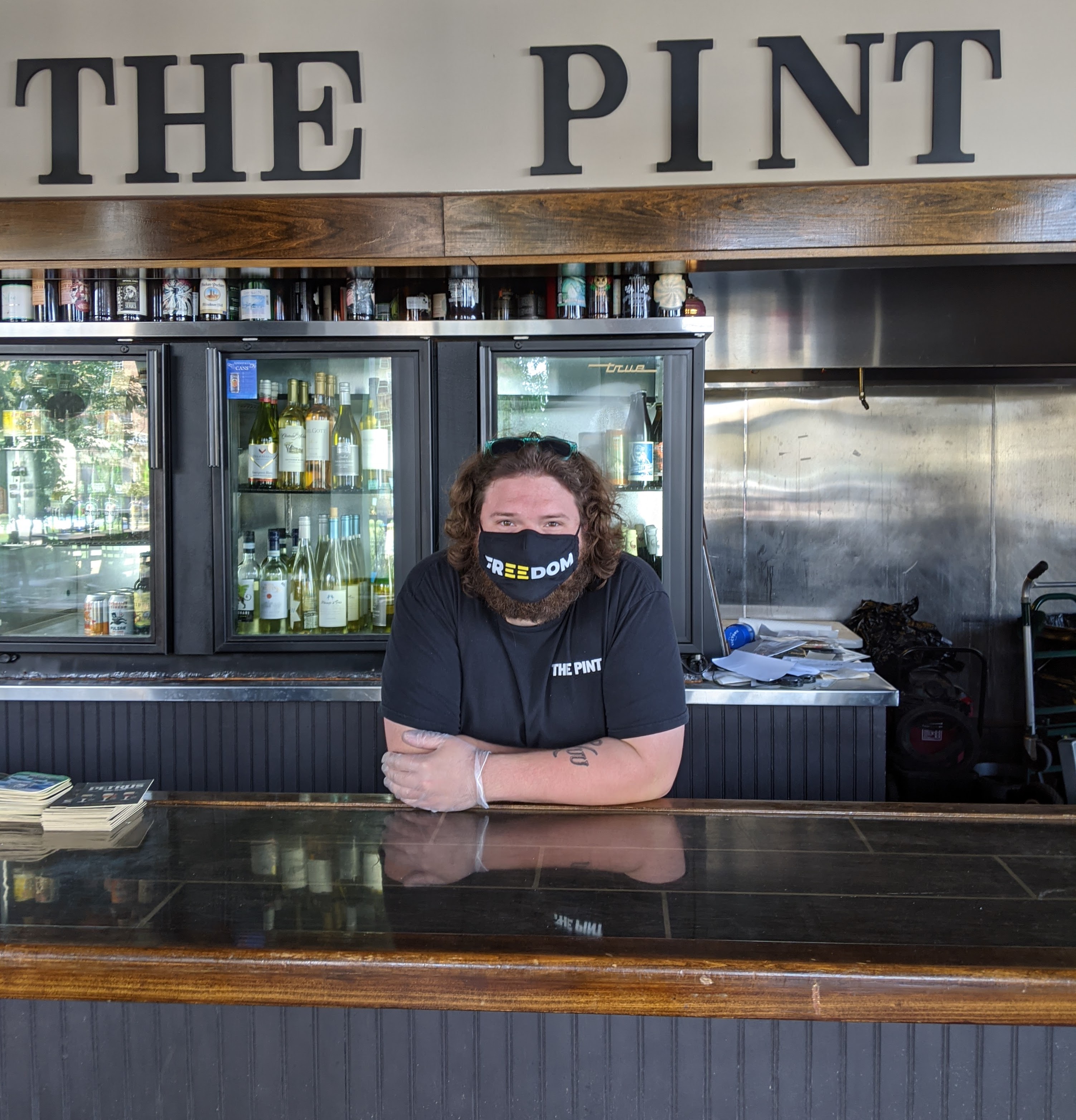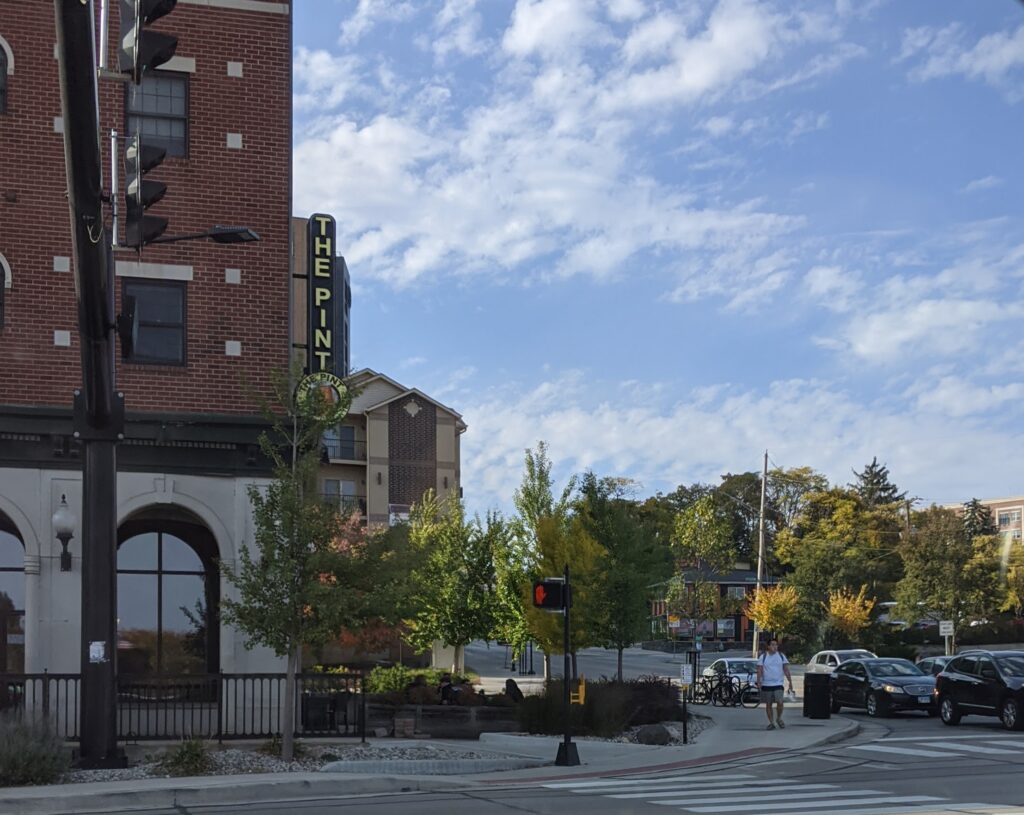A fairer wage
Alumnus, a West Lafayette bar owner, chooses to pay employees a livable wage

The problem had been on Patrick Hagmaier’s mind prior to COVID-19, but the pandemic’s economic fallout hammered home its urgency.
America’s tipped wage system is broken, and that was the case even before the coronavirus flambéed the service industry.
“You put people in a situation where everyone in the room is your boss and every single person gets to determine whether you put food on your table, whether you pay rent, whether you can make your bills,” said Hagmaier, who owns The Pint, a craft beer bar in West Lafayette. “That’s an insane prospect. That’s such a stressful work environment.”
And COVID-19 turned a bad situation even worse.

Hagmaier decided he could not in good conscience continue to pay his wait staff and bartenders $3 per hour, especially when his reopened business was serving significantly fewer customers than it had prior to the pandemic.
After many nights spent agonizing over whether he could afford it, Hagmaier decided during the shutdown to pay sidelined employees $15 per hour – roughly what they previously averaged when including tips – and continued the practice upon reopening in June. He raised prices by $1 per pint to cover some of the wage increase and views the remainder as a cost of doing business.
“In an ethical scheme, it’s really just that you should be paid for the job that you do,” said Hagmaier, a 2012 Purdue philosophy graduate who opened The Pint in 2013. “That’s a message that should be at the forefront of the way the business operates. Unfortunately, a lot of times in a lot of industries there’s an exploitation of labor. But in this industry, it’s pretty bad when you really get down to think about it, and I’m not immune to this. I’m not above it because I did it for years.”
Even before recalibrating his compensation practices at The Pint, Hagmaier paid an hourly wage slightly greater than the $2.13 per hour mandated under the Fair Labor Standards Act. While states such as Washington ($13 per hour), California (at least $12), and Oregon ($11.25) have implemented higher minimum wages for tipped workers, Indiana is among 17 states that abide by the federally mandated minimum hourly rate – provided that the worker makes at least the standard minimum wage ($7.25 per hour) when including tips.
“That’s spread out over your shifts,” Hagmaier observed. “So, if you have one really good hour that gets you to minimum wage for the whole day, well, then you made minimum wage for the whole day. Congratulations.”
Workers at The Pint face no such uncertainty under the new system.

Sure, there were nights in the past when they made more than $15 per hour, but there were others when they made far less. Now they will not have to do their jobs – or decide whether to enforce social distancing rules or a mask mandate – while worrying that customers’ refusal to tip might determine whether they can pay next month’s rent.
“The great thing about making a move like this, in my opinion, is what it does for the security of the employees,” Hagmaier said. “You come to work, and you know you’re going to work an eight-hour shift; you know you’re going to make $15 an hour. You know exactly how much you can count on going into your paycheck from that shift. There’s not the question of, ‘Well if it’s slow, I might make $30. If it’s busy, I might make $130.’”
Eleven years have passed since the United States last raised the federal minimum wage, the longest such stretch without an increase since its introduction in 1938. Indiana is among the 21 states that either do not have a minimum wage law on the books or that require only the $7.25 federal baseline rate.
Meanwhile, it has been nearly three decades since the federal minimum tipped wage was last adjusted in 1991.
Hagmaier does not expect his new wage structure to become an industry standard without federal or state legislation forcing the issue, but he hopes to prove to other business owners that it can be done effectively.
“My hope is that by us surviving and even thriving when this COVID-19 thing hopefully ends, other people will see it as a model, and other employees will start pushing for this,” he said.
Despite paying a slightly higher price per pint, customers at The Pint have accepted the change so far, according to the bar owner.
Hagmaier said he would never discourage customers from tipping, although signs at the bar inform them that servers no longer rely upon gratuities for their livelihoods. Within the first three months of the change, tips were down from approximately 25-30% to around 10%, Hagmaier said.
“People seem to like that it’s, ‘Hey, you can just buy this and you’re covering that person’s wage, and it’s a reasonable wage.’ It’s not, ‘Oh, we moved them up to minimum wage, which you can’t live off of in this country, so good luck,’” Hagmaier said.
“That’s been really great, but I think the bigger indicator has been the conversations you have with people across the board – older, younger, it doesn’t matter – where they say, ‘I like that system a lot. It’s really cool that you’re doing that,’ and then they tip an extra couple bucks on top of it. That’s really great to see, that there is some brighter hope for humanity in some of these darker moments.”